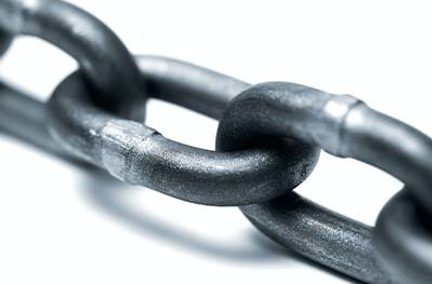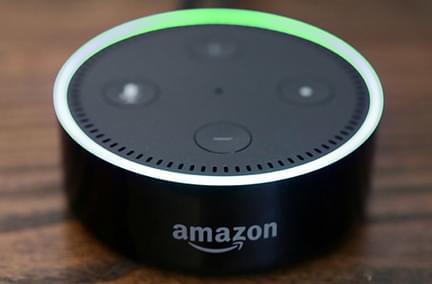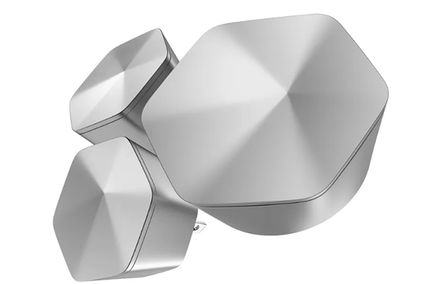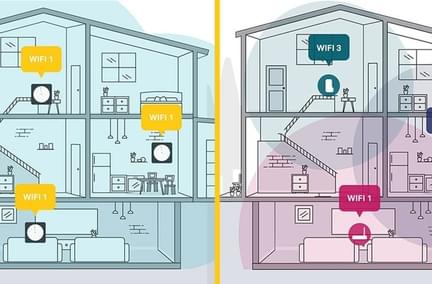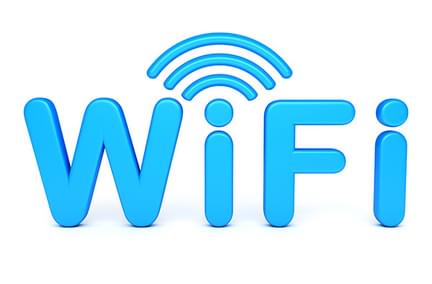Why is My Internet Connection Unstable?
Dec 30, 2024 | Home Technology, Wi-Fi

Nowadays, a stable internet connection is almost as essential as electricity. The days of the internet being a luxury are over. We all want internet service we can count on. Yet, as advanced as technology is in the 21st century, internet service disruptions remain a common frustration for many households. But why? How is it that with all these amazing advancements, the internet can still slow down or go out completely? Let’s examine the most frequent reasons for residential internet outages and how reliability differs between cable and fiber internet services.
Common Reasons for Internet Outages
Weather-Related Issues: Severe weather, such as heavy rain, snow, or high winds, can wreak havoc on infrastructure. For cable internet, weather can cause physical damage to overhead lines or underground cables. Though more resilient, fiber lines can also suffer from natural disasters like flooding or earthquakes that damage their installations.
Hardware or Equipment Failures: The devices within your home, such as modems, routers, or signal boosters, are often the culprits behind an outage. Outdated equipment, power surges, or improper configuration can all lead to connectivity issues. Service providers’ hardware, like servers or junction boxes, may also experience malfunctions interrupting your connection.
Network Congestion: During peak hours, the network can become congested when many people in the same area are streaming, gaming, or working online. This is more common with cable internet, which shares bandwidth among neighbors connected to the same node. Fiber internet solves much of this frustration with dedicated fibers to each subscriber.
Power Outages: Your internet uses electricity to power modems, routers, and other hardware. A power outage will take your connection offline without a battery backup system. Even if your computer has a battery, your modem or router likely doesn’t, so they go down when the power goes out.
Construction or Accidental Line Cuts: Sometimes construction can accidentally sever internet cables. Also, pedestals or utility poles near the road can get hit by a stray vehicle. This is a shared issue for both cable and fiber.
Provider Maintenance or Upgrades: Internet providers routinely perform maintenance or upgrades to ensure their network remains functional and up to date. Often these upgrade require a temporary pause in service and are typically performed at night to minimize the number of customers affected.
Cybersecurity Threats: While highly uncommon, hacking attacks can cause temporary outages for users.
Tips to Minimize Internet Downtime
Invest in a Quality Router and Modem: Keep your equipment up-to-date and compatible with your ISP’s recommendations. Using your internet provider’s equipment can ensure it is always compatible with the service. Plus, if it breaks, they will usually fix or replace it for free.
Consider a UPS (Uninterruptible Power Supply): This keeps your equipment running during short power outages.
Monitor Network Traffic: Use apps or tools to identify congestion issues and consider upgrading your plan.
Sign Up for ISP Alerts: Stay informed about planned maintenance or outages. At Gateway Fiber, we constantly monitor the network and send out notices to customers if we see an issue with service. We’ll also let you know when service is restored.
Explore Backup Options: If you need to get online when your normal service is down, mobile hotspots on your phone can provide temporary connectivity in emergencies.
Cable vs. Fiber: Reliability Differences
Understanding the fundamental differences between cable and fiber internet services can help you choose a more reliable connection.
Technology Overview
Cable Internet: Uses coaxial cables to transmit data and is often bundled with TV services. It shares bandwidth within neighborhoods, meaning speeds can vary depending on usage.
Fiber Internet: Relies on fiber-optic cables, which use light signals to transmit data. This technology provides symmetrical upload and download speeds and higher overall reliability.
Susceptibility to Interference
Cable: More prone to interference from weather and electromagnetic disruptions due to conductive copper-based coaxial cables.
Fiber: Resists interference from electromagnetic fields and weather conditions better.
Network Congestion
Cable: Since bandwidth is shared among multiple users in a neighborhood, heavy usage during peak hours can slow down speeds or even cause intermittent outages.
Fiber: Offers dedicated bandwidth, meaning speeds remain consistent regardless of how many people are online in the area.
Durability and Maintenance
Cable: Coaxial cables are generally easier and quicker to repair. However, they degrade faster over time, leading to more frequent maintenance.
Fiber: Fiber-optic cables are more durable and have a longer lifespan. They require less frequent maintenance but can be more complex and time-consuming to fix if damaged.
Latency and Speed
Cable: Typically has higher latency and slower upload speeds vs. download speeds, which can affect activities like video conferencing or uploading large files.
Fiber: Offers symmetrical speeds and significantly lower latency, making it ideal for modern online activities, including gaming and remote work.
Choosing the Right Connection
While no internet service can promise 100% uptime, understanding the common reasons for outages and the reliability differences between cable and fiber can help you make an informed choice and prepare for disruptions. Investing in robust equipment, staying vigilant about network activity, and choosing the right provider will go a long way in ensuring a seamless online experience.
- no internet
- no wifi
- internet outage

